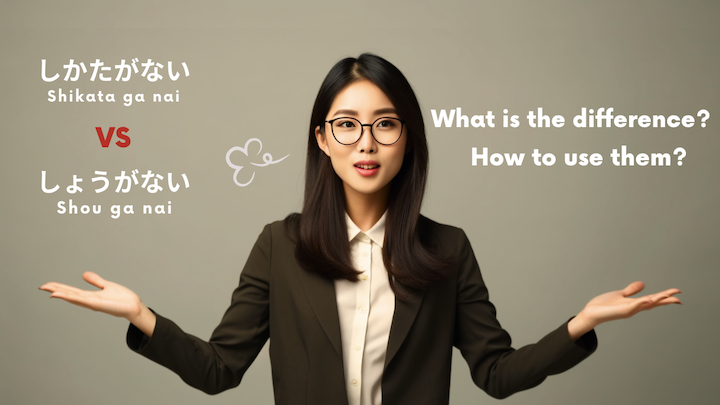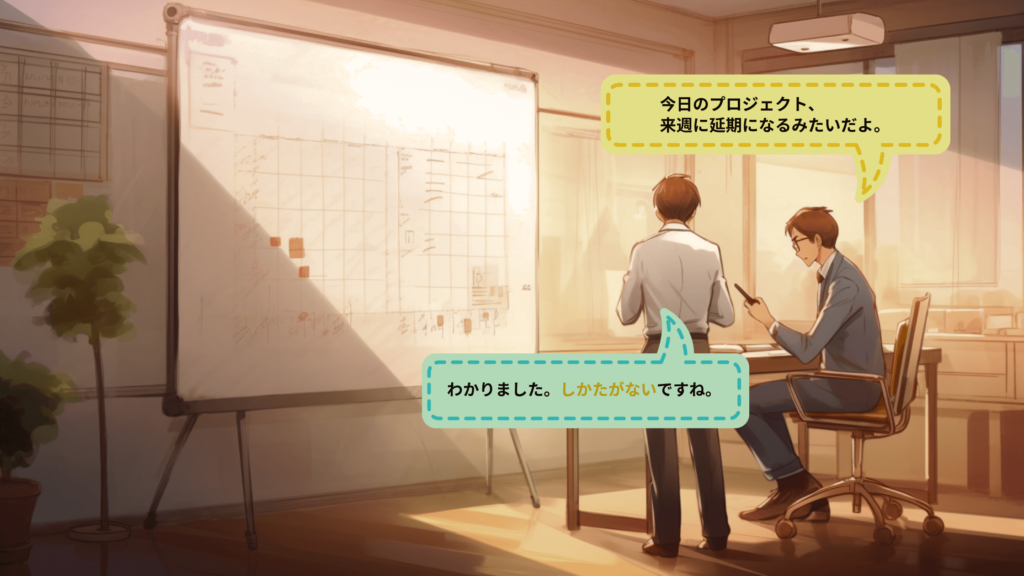Author: Mizuki Ichihira
If you've ever watched a Japanese anime or movie or have visited Japan, you've probably come across phrases like "shou ga nai naa!" or "shikata nai." These expressions have become quite famous and are worth exploring to learn Japanese more comprehensively.
"Shou ga nai naa!" and "shikata nai" convey a similar meaning, expressing a sense of resignation or acceptance of a situation that cannot be changed. They reflect the Japanese cultural perspective of embracing circumstances beyond one's control and finding peace in acceptance.
By delving into the meanings and nuances of these popular expressions, you can deepen your understanding of the Japanese language and culture.
Speaking Japanese Phrases The Right Way
In English, both "shikata nai" and "shou ga nai" can be translated as "can't be helped" or "have no choice but to...". These phrases are commonly used by Japanese people in everyday situations where there is no alternative but to accept and move on.
Certainly, speaking fast-paced Japanese can be challenging, but there's no need to rush. Let's take a look at some examples to get a sense of what speaking Japanese looks like:
Example 1
| Japanese Sentence | English Sentence | |
|---|---|---|
| A: 明日、テストの勉強を手伝ってくれませんか?お願いします! | Ashita, tesuto no benkyou o tetsudatte kuremasenka? Onegaishimasu! | "Can you help me study for the test tomorrow, please?" |
| B: もう、しょうがないな。今回だけだよ。 | Mou, shou ga nai na. Konkai dake dayo. | "Geez, can't be helped. Just this time." |
Example 2
| Japanese Sentence | English Sentence | |
|---|---|---|
| A: ママ、アイス食べたい!買ってくれる? | Mama, aisu tabetai! kattekureru? | "Mom, I want to eat ice cream. Would you like to buy me one?" |
| B: しょうがないな! | shou ga nai na! | "Oww, sure! / I have no choice." |
However, "Shikata nai" (しかたない) is the casual shortened form of "Shikata ga arimasen" (しかたがありません). As you can see, the particle "ga" is omitted, and "arimasen" is shortened to "nai".
Therefore, in formal situations, "Shikata ga nai" or the more formal "Shikata ga arimasen" is more appropriate than "Shou ga nai," which is a more casual expression.
A Descending Level of Politeness
| Japanese Sentence | |
|---|---|
| しかたがございません。 | Shikata ga gozaimasen |
| しかたがありません。 | Shikata ga arimasen |
| しかたがない。 | Shikata ga nai |
| しかたない。 | Shikata nai |
| しょうがない。 | Shou ga nai |
To participate in the conversation on this topic, we kindly request you to sign up as a We member for free. By registering, you will have access to join the discussion, and as a token of our appreciation, you will receive a complimentary interactive lesson.





